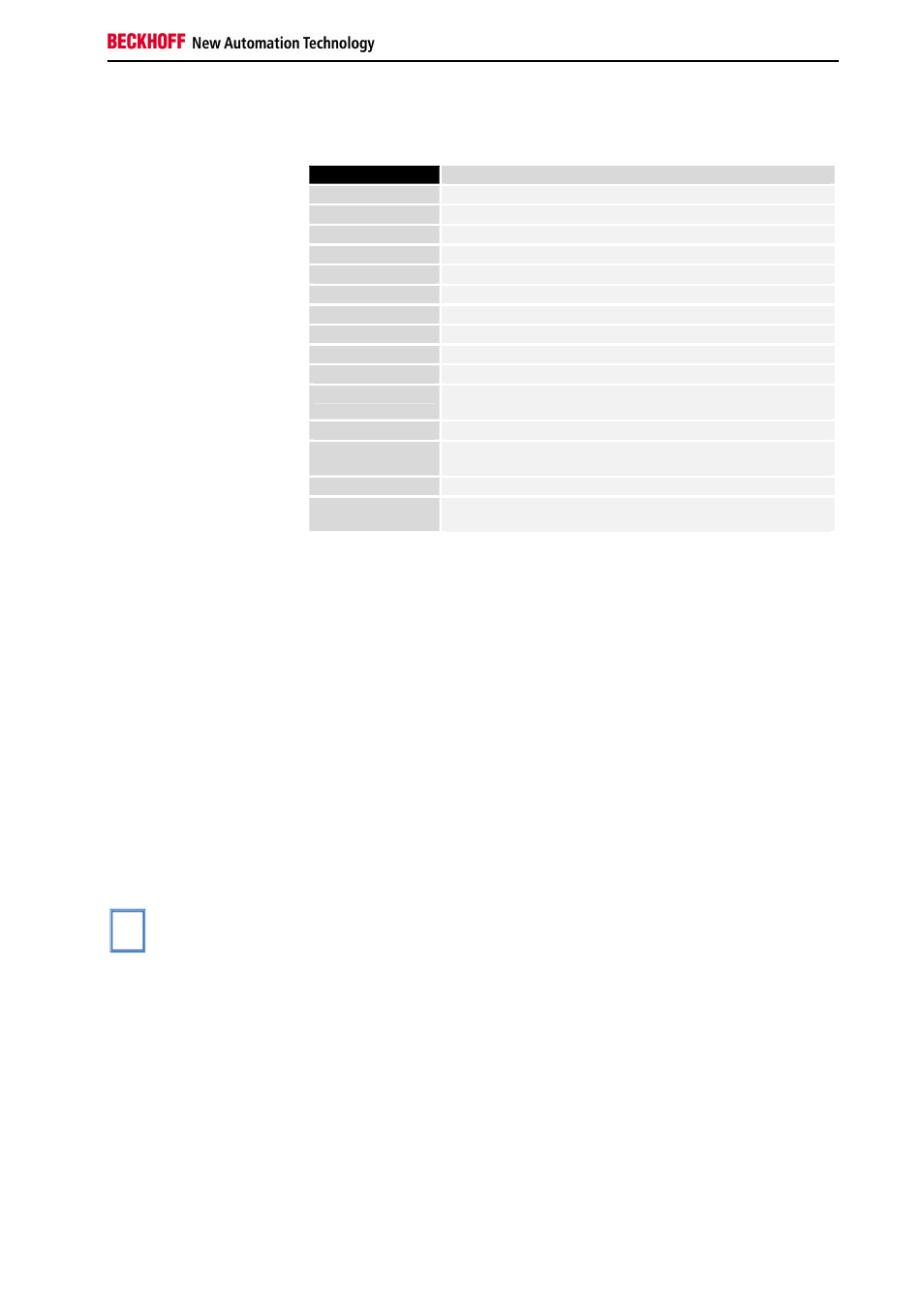BECKHOFF KL1501 User Manual
Page 11

Terminal configuration
KL1501
9
R13: Data type register
Data type
register
0x00
Terminal without valid data type
0x01
Byte array
0x02
1 byte n bytes structure
0x03
Word array
0x04
1 byte n words structure
0x05
Double word array
0x06
1 byte n double words structure
0x07
1 byte 1 double word structure
0x08
1 byte 1 double word structure
0x11
Byte-array with a variable logical channel length
0x12
1 byte n bytes structure with a variable logical channel
length (eg 60xx)
0x13
Word-array with a variable logical channel length
0x14
1 byte n words structure with a variable logical channel
length
0x15
Double word array with a variable logical channel length
0x16
1 byte n double words structure with a variable logical
channel length
R14: not used
R15: Alignment bits (RAM)
The analog terminal is set to a byte limit in the terminal bus with the
alignment bits.
Manufacturer parameters
R16 to R30: Manufacturer parameter area (SEEROM)
The manufacturer parameters are specific to each terminal type. They are
programmed by the manufacturer but can also be modified from the control
system. The manufacturer parameters are stored permanently in a serial
EEPROM and are therefore not destroyed by power failures.
These registers can only be modified after setting a code word in R31.
User parameters
R31 to R47: User parameter area (SEEROM)
The user parameters are specific to each terminal type. They can be
modified by the programmer. The user parameters are stored permanently
in a serial EEPROM in the terminal and cannot be destroyed by power
failures. The user area is write protected over a Codeword.
i
Note
R31: Code word register in the RAM
The code word 0x1235 must be entered here to enable modification of
parameters in the user area. Write-protection is set if a different value is
entered in this register. When write protection is inactive, the code word is
returned during reading of the register. The register contains the value zero
when write protection is active.
R32: Feature-register
This register defines the operating modes of the terminal. For example, a
user-specific scaling can be activated for the analog I/Os.
R33 to R47
Registers that depend on the terminal type
Extended application area
R47 to R63
These registers have not yet been implemented.
